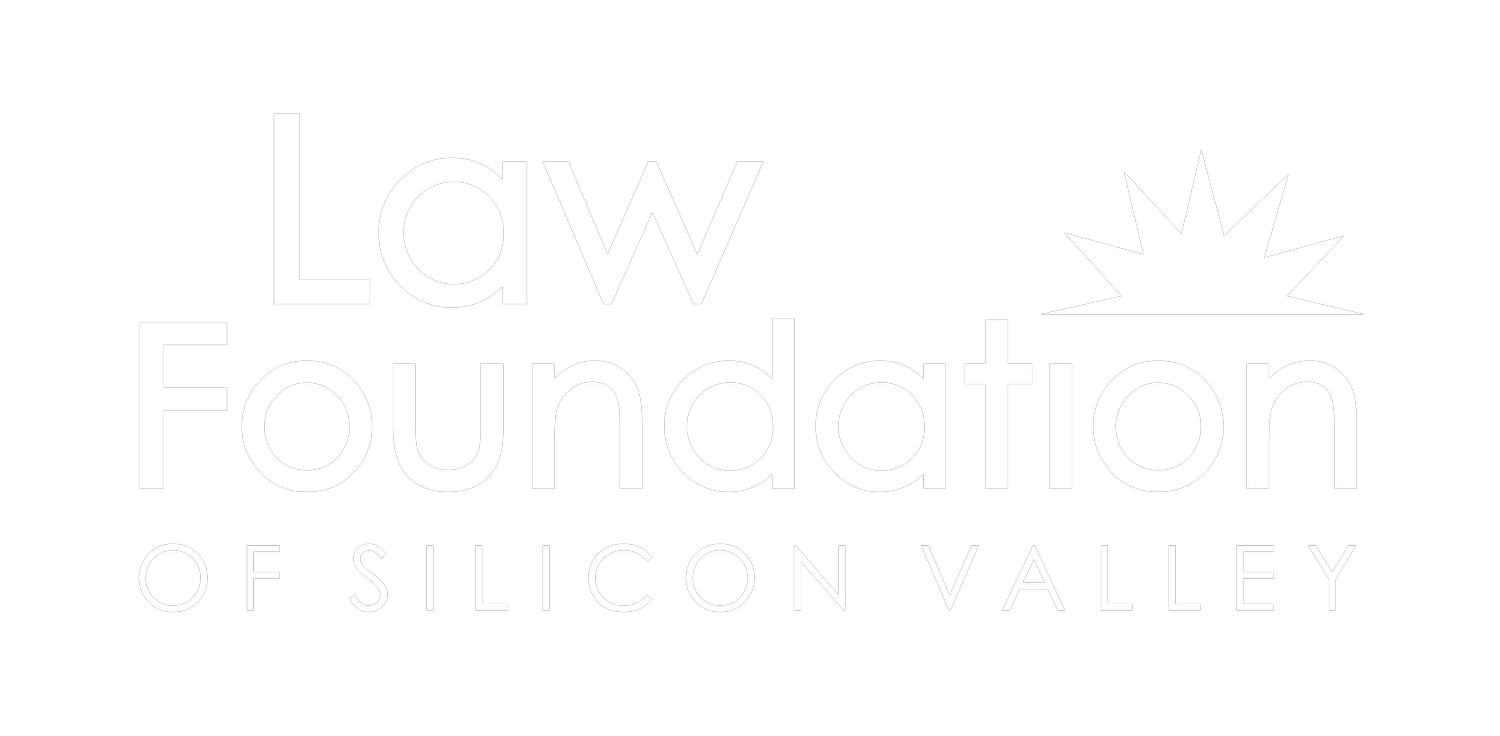NEWS RELEASE
April 22, 2020
CONTACT: communications@lawfoundation.org
SAN JOSE, CA — The Law Foundation of Silicon Valley and Sacred Heart along with 19 other Santa Clara County community-based organizations sent a letter today to the Board of Supervisors urging the county to use race demographic data on COVID-19 to tackle longstanding racial disparities and system inequities. The groups applauded the release of race demographic data for COVID-19-related deaths, and called on the county to release expanded data so that it can be used to address the inequities and root causes of systemic racism as plans move forward for recovery and rebuilding.
Dear President Chavez and Members of the Board:
We are writing on behalf of 21 Santa Clara County community-based organizations to applaud the County’s bold leadership during the COVID-19 pandemic, including the important decision to release race demographic data for COVID-19-related deaths.
We also look forward to the further release of reliable race data for other COVID-19-related categories. Even without expanded data, however, it is clear that communities of color are among the hardest hit – even here in Santa Clara County. That is why this data is so critical. We must use this information to guide our collective response by creating policies that address these inequities in significant ways and in ways that target the root causes of systemic racism.
The newly released data shows deaths of Latinos and African Americans are happening at alarmingly disproportionate rates. Of 88 deaths, 33% were Latino even though Latinos make up only 25% of the general population, and, nearly three times as many African Americans have died compared to the general population. (Santa Clara County Public Health Department COVID-19 Dashboard, 4-21-20)
Moreover, we know that Latinos and African Americans are more likely to hold the essential services jobs that we all are heavily relying on during this crisis. They are cleaning our buildings, getting food on our tables, and taking care of our loved ones who are vulnerable and sick. And, yet, these are the very jobs we typically undervalue with inadequate compensation and lack of healthcare access.
Communities of color have been subjected to centuries of racist policies that have led to inequitable access to adequate health care, education, housing, economic opportunity, and more. We appreciate the County’s recognition that social determinants of health may impact the distribution and severity of COVID-19 across the community. We further acknowledge the County’s leadership over the past several years in developing its governance in ways that apply a race equity lens, including participating in GARE (Government Alliance on Race & Equity) and using race equity analyses. There is no question that COVID-19 has exposed the deep-seated inequities that have long plagued our society.
That’s why we are grateful for the County’s bold leadership throughout this crisis, including prioritizing the release of reliable race demographic data. And, we ask the County to take hold of this critical data to boldly address these inequities as we move into the planning for recovery and rebuilding. Specifically, we ask the County to:
release expanded, reliable race demographic data, including testing, confirmed cases, hospitalization, as soon as it becomes available;
add the collection, tracking, and release of related data, including housing status if available, as quickly as possible;
use the race data to develop policies and distribute resources during the recovery and rebuilding process that tackle these racial disparities and their root causes at system levels; and
center the voices and experiences of individuals of color most adversely impacted by this crisis in the recovery and rebuilding process.
We appreciate the actions you and other elected officials have taken thus far to provide shelter for homeless people, halt evictions, expand financial relief for unemployed individuals, extend sick leave, and enhance our health care infrastructure for those in need. Let’s work together to ensure these are not just temporary changes because they reveal what is possible when we realize that our fates are all tied together. As we move ahead, we look forward to working together to ensure that our post-coronavirus Silicon Valley is a more equitable one.
Sincerely,
Poncho Guevara, Executive Director
Sacred Heart Community Service
Megan Fluke, Executive Director
Green Foothills
Verónica Goei, Executive Director
Grail Family Services
Sparky Harlan, CEO
Bill Wilson Center
Kyra Kazantzis, CEO
Silicon Valley Council of Nonprofits
Tom Myers, Executive Director
Community Services Agency
Esther Peralez-Dieckmann, Executive Director
Next Door Solutions to Domestic Violence
Suzanne St. John-Crane, CEO
American Leadership Forum Silicon Valley
E. Christopher Wilder, CEO
Valley Medical Center Foundation
Kevin Zwick, CEO
Housing Trust Silicon Valley
Alison Brunner, CEO
Law Foundation of Silicon Valley
Milan R. Balinton, Executive Director
African American Community Service Agency
Shiloh Ballard, President & Executive Director
Silicon Valley Bicycle Coalition
Leslye Corsiglia, Executive Director
SV@Home
Tanis Crosby, CEO
YWCA Silicon Valley
Cayce Hill, Executive Director
Veggielution
Gregory Kepferle, CEO
Catholic Charities of Santa Clara County
Sarita Kohli, President & CEO
Asian Americans for Community Involvement
Michele Lew, CEO
The Health Trust
Jennifer Loving, CEO
Destination: Home
David K. Mineta, President & CEO
Momentum for Mental Health

